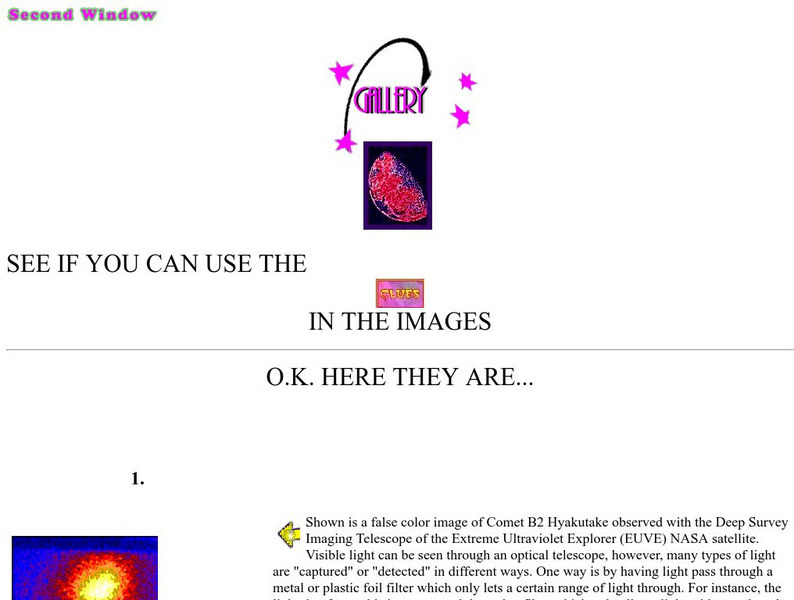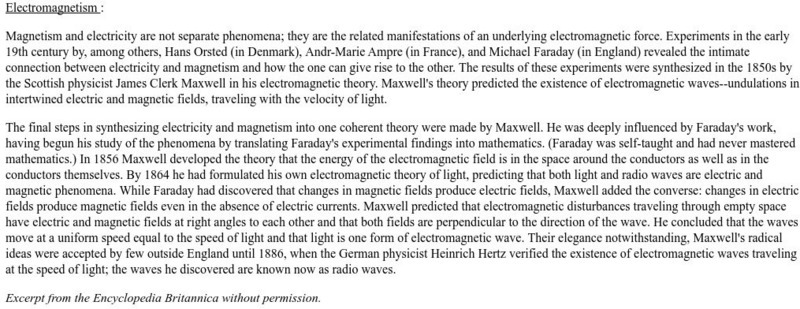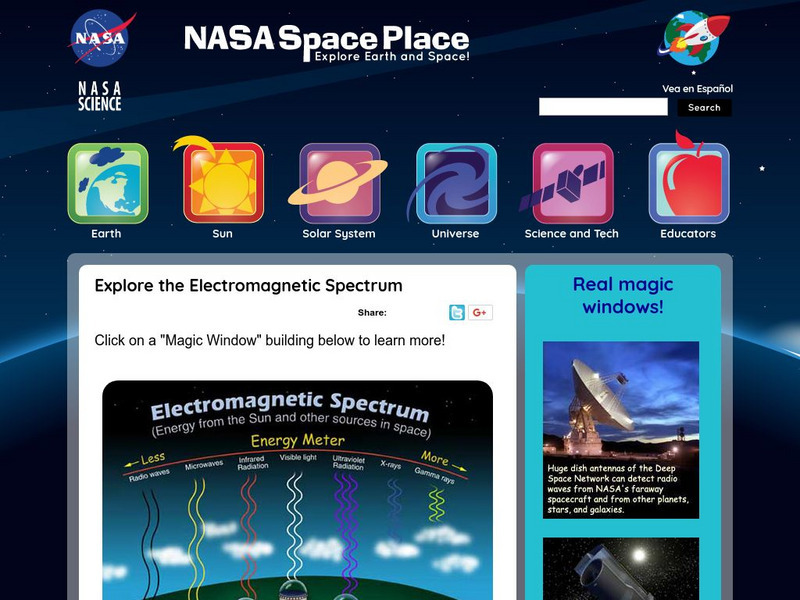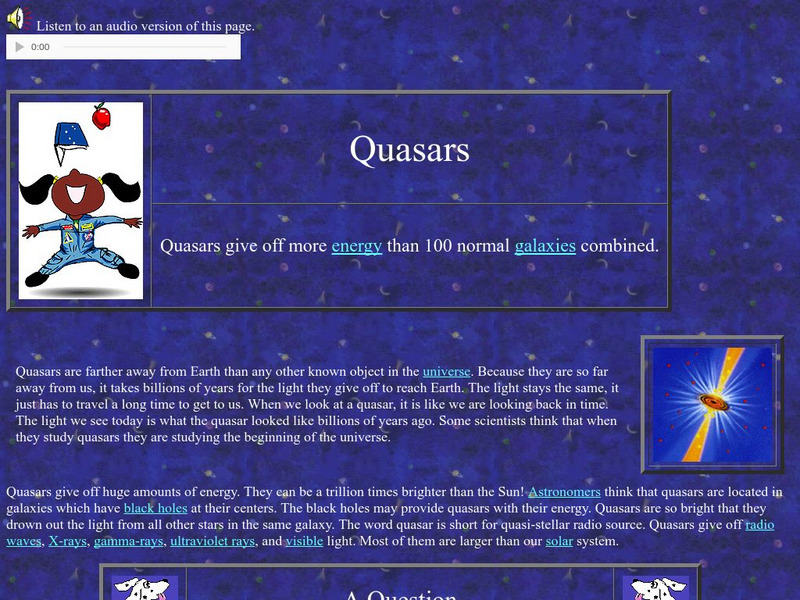NASA
Nasa: Imagine the Universe: "Nasa Detects One of Closest"
Site provides the article, "NASA Detects One Of Closest And Brightest Gamma Ray Bursts." Provides links to learn more about gamma rays and black holes as well as other resources.
University of California
Center for Science Education: Gallery
A gallery of astronomy images which depict galaxies, comets, the moon, planets, nebulae, supernovae as seen in various regions of the electromagnetic spectrum. Each image in the gallery is described. Fascinating!
University of Oregon
University of Oregon: Electromagnetism
A solid summary from the University of Oregon of the work of James Maxwell Clerk, Michael Faraday, and others in the field of electric and magnetic phenomena. This is a fine essay.
NASA
Nasa's the Space Place: A Trip to the Land of the Magic Windows
Explore the electromagnetic spectrum and learn about each type of energy on the spectrum.
NASA
Viewing the Violent Universe: What Are Gamma Rays?
The universe produces a broad range of light, only a fraction of which is visible to our eyes. Gamma rays are nonvisible light, which also includes x-rays, ultraviolet light, infrared radiation, and radio waves.
University of California
U.c. Berkeley: Spectra From Space
View the entire spectrum of electromagnetic radiation and get information on telescopes especially designed to view different wavelengths of the spectrum.
NASA
Nasa Star Child: Quasars (Level 1)
Learn why quasars are the brightest things in the universe. Vocabulary words linked to a glossary of terms and a printable version are available.
NASA
Nasa Star Child: Comets (Level 1)
Younger students learn why comets race through the sky as well as related vocabulary words and meanings.
NASA
Nasa: The Space Place: The Land of the Magic Windows
This is a site from NASA that contains an interesting and fun way to learn about the electromagnetic spectrum. Kate receives a strange riddle from her grandfather. Find out what it says and go through the gateway to the Land of the Magic...










